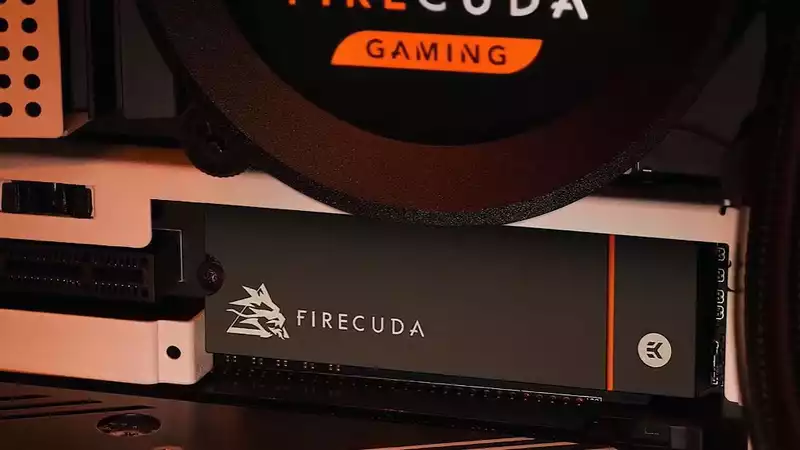Seagate's excitement over its new FireCuda 530 SSD is contagious. Unveiled at SG21, the company's first virtual gaming event, the latest SSD not only has extremely fast rated read/write speeds. Cooperation with EK, a specialist in liquid cooling, has also been incorporated into this SSD.
Let's start with speed. Seagate offers four different capacities: 4TB, 2TB, 1TB, and 500GB. The two largest drives both offer up to 7,300 MB/s sequential read performance and up to 6,900 MB/s sequential write performance. [According to Seagate's data sheet, the "slowest" 500GB model is 7,000MB/sec read and 3,000MB/sec write.
If the FireCuda 530 comes even remotely close to these metrics, it will solidify itself as the fastest, and perhaps one of the best, PCIe 4.0 SSDs for gaming in terms of raw performance.
Not surprisingly, the engine driving the FireCuda 530 is Phison's E18 controller. Its latest generation controller pushes PCIe 4.0 SSDs to new heights, approaching the saturation of the bus on which these drives operate: while the theoretical upper limit for PCIe 4.0 x4 is about 8,000MB/s, the 8-channel controller itself can deliver up to 7,400MB/s of read performance.
Seagate will offer the FireCuda 530 with and without anodized aluminum heat sinks developed by EK, widely known in the custom liquid cooling scene.
"It maintains the sleek design for which both Seagate's FireCuda line and EKWB are known, while offering a low profile for tight builds as well as thermal management. Seagate and EK's open and collaborative spirit is what makes the FireCuda 530 truly stand out."
According to EK and Seagate, the anodizing process creates microscopic pores for additional cooling, and the 30 g chunk of aluminum (with a fine textured finish) features self-adhesive thermal pads and a low-profile design to fit into tight spaces.
We haven't tested the FireCuda 530 yet, but theoretically, this heatsink should help avoid throttling for an extended period of time.
As for the drive's endurance, the 4TB model is rated to withstand up to 5,100 terabytes written (TBW). Or, as Seagate puts it, it can write to 70% of the drive's capacity every day for five years (which is the warranty period).
The caveat, as you might imagine, is the pricing. Here's the breakdown:
The price difference between the bare drive and the heatsinked version jumps from $20 for the 500GB and 1TB models to $50 for the 2TB and 4TB, which is a bit disappointing.
In any case, Seagate's "fastest and most powerful gaming SSD" will be available this summer. Expect the retail price to be a bit lower.


Comments